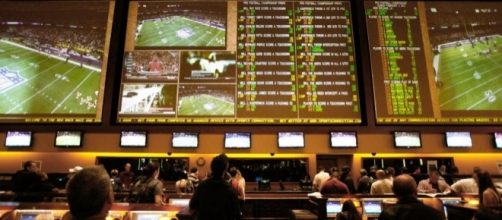On Tuesday, the U.S. Supreme Court made an announcement of their decision to hear and review New Jersey's appeal to the federal ban of Sports Betting.
"We are pleased the Supreme Court appears to have responded favorably to our arguments as to why they should hear this important case," CEO of the American Gaming Association Geoff Freeman said. "We are hopeful their engagement will provide further encouragement for Congress to take the steps necessary to create a regulated sports betting marketplace in the United States."
The state of New Jersey has long been trying to push bills to legalize sports betting, but the 3rd U.S.
Circuit Court of Appeals have ruled in a decision that the law breached the Professional and Amateur Sports Protection Act (PASPA) of 1992, which outlaws state-authorized sports gambling. The case could be heard and discussed by Supreme Court early this fall or sometime this winter.
"The fact that the Supreme Court granted cert in this case is a very good sign for sports betting having a future in New Jersey. I am encouraged by it," according to a statement made by New Jersey Governor Chris Christie at a press conference. "We're not declaring victory, but at least we're in the game and that's what we want to be."
Nevada is one of the four states allowed to bet at a sports book.
New Jersey Governor supports sports betting
Chris Christie bolstered sports gambling and signed a legislation in an endeavor to legalize sports betting at its casino and horse racing industries. The major four professional sports leagues and the NCAA have previously filed a lawsuit against Christie for signing a bill into law to legalize sports betting twice in 2012 and 2014.
In an interview with a sports radio show this month, Christie opposed to the federal government's legislation that restricted sports gambling while it granted the state to regulate recreational marijuana, despite federal law that prohibits it.
Pro sports leagues appear flexible over ban
Sports gambling has grown in popularity across the U.S.
over the decades. National Basketball Association Commissioner Adam Silver attempted to embolden the government to regulate sports betting market. Major League Baseball Commissioner Robert ManFred and Major League Soccer Commissioner Don Garber were open to a discussion to reexamine its federal ban.
Despite the fact that the National Football League owners approved the Oakland Raiders to relocate to Las Vegas, the league continues to stand strong against legalized sports gambling. The National Hockey League placed the newly founded professional ice hockey franchise, the Vegas Golden Knights, to play in Las Vegas this fall.
Pro sports leagues such as NBA, NFL and MLB were not able to comment on this matter.
The National Collegiate Athletic Association has filed a lawsuit to halt sports gambling operations in New Jersey. The NCAA successfully prevented the world's largest daily fantasy sports companies -- DraftKings and FanDuel -- from participating in a college fantasy contest for money. A few months ago, two senators attempted to persuade the NCAA to reconsider the decision to lift the ban.
Research shows sports betting -- legal or illegal -- is happening
Regardless of whether sports gambling is legal or not, it is still happening. In 2016, Americans wagered $4.5 billion at sports books in Nevada. People illegally bet $150 billion outside of Nevada each year. Research indicated that allowing sports betting could create more than 150,000 jobs.
Thus, sports betting proponents encouraged that gambling should be regulated by federal government.
Few states such as Arizona, Louisiana, Mississippi, West Virigina and Wisconsin had supported New Jersey's endeavor to legalize sports betting. American Gaming Association plans to establish a partnership with organizations and individuals, including attorneys, policymakers and others to support the campaign for the cancellation of the sports betting ban.


